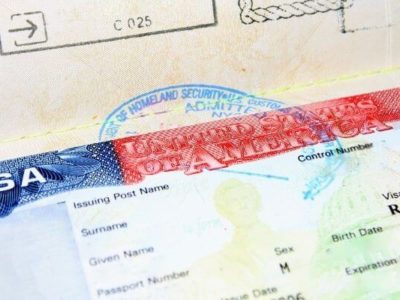J-1 visa holders who still have work or training that needs to be completed in the U.S., but their J-1 visa term is about to expire can apply for extension.
The application is simple provided the applicant has justifiable reasons for extension. There are also other ways and circumstances that a J-1 visa may be extended.
- Travel “Grace Period” of 30 days – Preparation for Departure.
Generally, at the end of the term of the J-1 visa, the holder may extend their stay, without applying for an extension, for an additional 30-day grace period for purposes of preparing their departure. - Upon Application for Extension During the Validity of the J-1 Status the term of the J-1 visa however may be extended upon application of the visa holder before the expiration of its original duration after it was issued.
- Extension Through Change of Category of the J-1 Visa. A change of the category of the J-1 visa may also result to an extension of its original term.
The change however must be consistent and closely related to the purpose and objective of the J-1 visa originally applied for.
The application for change of category shall be submitted by the program sponsor on behalf of the applicant via an electronic request together with the supporting justification to the Department of State. - Six Months Extension for Research Scholars.
Research scholars and professors may request a six-month extension from their sponsor program when necessary for purposes of completing their research program or project.
Application for another six-month extension after the first extension shall require documentation that shows the circumstances why a further extension will be required.
This second application for extension must be submitted and approved by the Department of State rather than the sponsor program.
Application for Extension of a J-1 Visa
An applicant is eligible for the extension of the J-1 visa based on the following conditions:
- The applicant must be currently on a J-1 status
- The DS-2019 form is filled in by the program sponsor
- Documentation to be submitted for purposes of extension of the J-1 visa:
- Valid passport of the J-1 visa holder
Documentary evidence of the following:
- Showing the financial capacity of the applicant to pay for living expenses and/or tuition for one year. This is required in cases when the program sponsor is unable to support the J-1 visa holder financially.
- J-1 visa health insurance which should cover the period of extension including the dependents of the J-1 visa holder who are on J2 visa status
Forms to be filled in and submitted:
- DS-2019
- IAP-66
- 1-94
Other documentation supporting or explaining the application for extension
Steps/Process in the Application for Extension of the J-1 Visa
The program sponsor shall determine the eligibility of the applicant through the submitted documentation.
Once the application for the J-1 visa extension has been accepted, the applicant must obtain a new DS-2019 form with a new expiration date.
The new expiration date will be recorded with SEVIS. A SEVIS fee is not required for the extension application.
The J-1 visa holder’s children or a spouse who are on J-2 status shall be covered by the application for extension.
The newly issued DS-2019 will have a new end date and SEVIS will also record the new expiration date. If you have dependents (spouse and/or children) on a J-2 visa, each of your dependents must be issued their own DS-2019.
The amount of fees to be paid for extension and the maximum time the J-1 visa can be extended depends on the J-1 category.
Suspension of Issuance of J-1 Visa due to COVID-19
To control the entry of immigrants in the U.S. due to the COVID-19 pandemic, the issuance of J-1 visas has been suspended until March 31, 2021.
What is a J-1 Visa?
The J-1 Visa (J-1 Visa Exchange Visitor Program) is a visa for non-U.S. citizens who wants to participate in a U.S. work-study exchange visitor program.
The J-1 visa is administered by the U.S. Information Agency (USIA) and not the Immigration and Naturalization Service because its main purpose is for strengthening U.S. relations with other countries through the promotion and exchange of knowledge and skills in education, art, and science (i.e., work, learn, teach, consult, research, and other related activities).
Who Is Eligible For A J-1 visa?
Eligibility is subject to the following requirements:
- Securing a sponsor for the specific category the applicant wishes to apply
- Payment of SEVIS I-901 fee.
- Submission to the U.S. embassy of the following:
- DS-2019 form (Certificate of Eligibility for Exchange Visitor Status)
- DS-7002 (Training/internship Placement Plan)
- DS-160 (Online Non-immigrant Visa Electronic Application)
- Passport which has a 6-month validity after the period of the intended stay in the U.S.
- One (1) 2”x2” Photo
Those eligible are usually the following, but not limited to, researchers, secondary school students, scholars, professors, interns, trainees (physicians and pilots), government officials, specialists, nannies, etc. who are sponsored either by an academic institution, private sector, or government program.
Duration of Stay for the J-1 visa
The length of stay for a J-1 visa holder is specified in the DS-2019 form. The duration depends on the specific program or category applied for. The maximum period is generally 7 years, with exception to employees of the International Communications Agency who may be allowed to stay for 10 years of more.
- Teachers, scholars, researchers, and professors – 3-5 years.
- Medical grad students – 7 years.
- International Communications Agency Employees – 10 years or more
- Professional trainees and government visitors – 18 months – 2 years.
- Camp counselors and summer workers – 4 months.
- Nannies and au pairs – 1 year.

